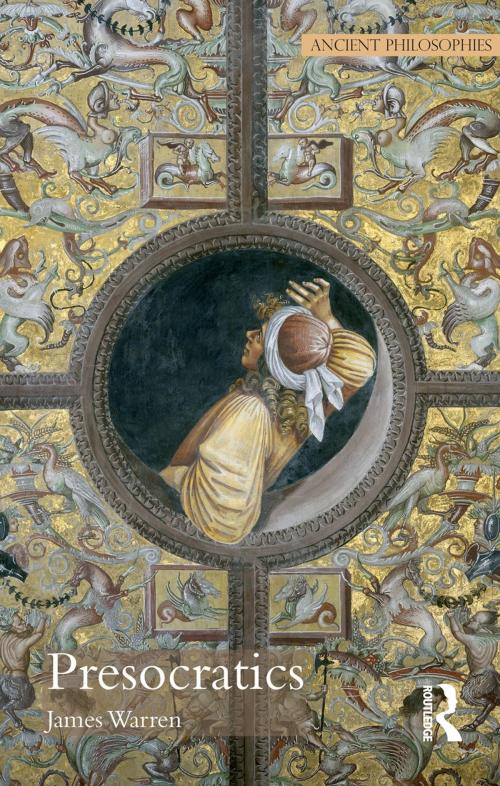| Author: | James Warren | ISBN: | 9781317493365 |
| Publisher: | Taylor and Francis | Publication: | December 5, 2014 |
| Imprint: | Routledge | Language: | English |
| Author: | James Warren |
| ISBN: | 9781317493365 |
| Publisher: | Taylor and Francis |
| Publication: | December 5, 2014 |
| Imprint: | Routledge |
| Language: | English |
The earliest phase of philosophy in Europe saw the beginnings of cosmology and rational theology, metaphysics, epistemology, and ethical and political theory. It saw the development of a wide range of radical and challenging ideas: from Thales' claim that magnets have souls and Parmenides' account that there is only one unchanging existent to the development of an atomist theory of the physical world. This general account of the Presocratics introduces the major Greek philosophical thinkers from the sixth to the middle of the fifth century BC. It explores how we might go about reconstructing their views and understanding the motivation and context for their work as well as highlighting the ongoing philosophical interest of their often surprising claims. Separate chapters are devoted to each of the major Presocratic thinkers, including Xenophanes, Heraclitus, Parmenides, Anaxagoras, Empedocles, Leucippus and Democritus, and an introductory chapter sets the scene by describing their intellectual world and the tradition through which their philosophy has been transmitted and interpreted. With a useful chronology and guide to further reading, the book is an ideal introduction for the student and general reader.
The earliest phase of philosophy in Europe saw the beginnings of cosmology and rational theology, metaphysics, epistemology, and ethical and political theory. It saw the development of a wide range of radical and challenging ideas: from Thales' claim that magnets have souls and Parmenides' account that there is only one unchanging existent to the development of an atomist theory of the physical world. This general account of the Presocratics introduces the major Greek philosophical thinkers from the sixth to the middle of the fifth century BC. It explores how we might go about reconstructing their views and understanding the motivation and context for their work as well as highlighting the ongoing philosophical interest of their often surprising claims. Separate chapters are devoted to each of the major Presocratic thinkers, including Xenophanes, Heraclitus, Parmenides, Anaxagoras, Empedocles, Leucippus and Democritus, and an introductory chapter sets the scene by describing their intellectual world and the tradition through which their philosophy has been transmitted and interpreted. With a useful chronology and guide to further reading, the book is an ideal introduction for the student and general reader.















